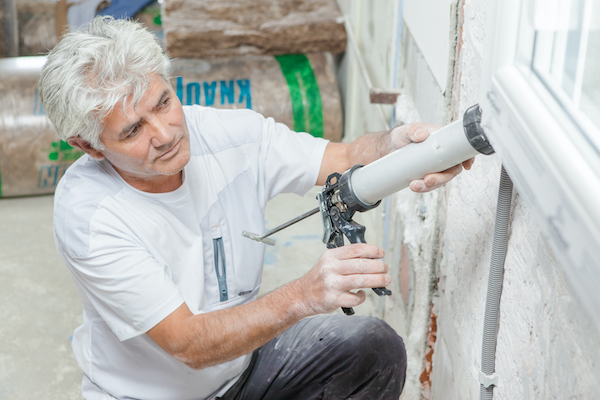If you live in Ohio and Michigan, you are likely to experience low temperatures and freezing winds during winter. This frigid weather demands that homeowners make their homes winter-ready — even if they plan to fly the coop for the entire season.
Whether you are a snowbird or not, these tips are for you to learn how to efficiently winterize your homes and survive the cold season and reduce the chance of encountering any major (possibly expensive) weather-related emergencies.
General Tips to Winterize Your Home
Winterizing your home will benefit you in ways you would not even have thought! A winterized home is energy efficient, as the heat loss is minimal, which means you will save a significant amount on your energy bills. On top of that, you reduce the possibility of unexpected costs of repairing frozen water pipes and faucets.
Here are some tips to keep in mind while preparing your house for the winter season:
- Install weather stripping on doors and windows -You may not realize this, but the gaps between your doors and windows are often a major cause of heat loss — sealing it is a cost-effective way to avoid this and improve your home’s energy efficiency. Apart from sealing your doors and windows with self-adhesive adhesive stripping or adhesive-backed tapes, installing a storm door will also help retain heat and maintain a pleasant atmosphere.
- Clean the gutters – Ideally, you should have your gutters cleaned near the end of fall. Otherwise, leaves will pile up and eventually clog the gutters. Clean gutters ensure the melting snow drains smoothly without any impediment. You can even install gutter guards made of stainless steel or polyvinyl chloride (PVC) to prevent leaves and debris from blocking the gutters.
- Prepare your roof for winter – The roof on your home plays a crucial role in protecting you from the cold winters. That being said, it is the most vulnerable element of your house, as it is exposed to the constant barrage of snow and wind storms. Winterizing the roof ensures it is strong enough to survive the harsh winter season. For the same, clear clogged downspouts, check the condition of your flashing, and look for signs of damage — like a wet ceiling — and get them repaired.
- Insulate the attic – The attic plays an indispensable role in determining the temperature of a house. It is often left unattended, making it more likely to become a major source of heat loss. To avoid running into this issue, insulate the openings of your attic, and you will spend less on maintaining a pleasant, warm temperature in your house. Call the experts to inspect air leaks and fix them.
Going South? This Checklist Is For You!
Many older adults seek the warm weather during the winter months often spending the entire winter season in the south. Preparing your house for the upcoming inclement weather is even more essential for you since you are likely to be gone for months.
For that reason, strike off the following items from your to-do list — along with the steps mentioned above — before you lock your doors and head south!
- Lower the heat – One of the most common misconceptions among homeowners is that they will save their money by switching off all heating systems while they are away. Though this is a logical argument, it can end up doing you more harm than good. Turning off the heat can damage the pipes and other home equipment. Therefore, it is ideal for lowering the heat level rather than entirely shutting it off — ideally, the thermostat should be above 55 °F.
- Turn off the water – While you keep the heat on, turn off the water! The pipes often freeze during the winters, and the continuous water supply can damage or break them. If you leave the water supply on, don’t forget to shut off outside faucets. On top of that, turn off the water supply to the washing machine and refrigerator to prevent damage should the water lines to these appliances break.
- Protect against theft -Most importantly, you would want to keep your house protected from break-ins when you are away. As such, make sure all alarm systems are functioning well and store your valuables in a place inaccessible to anyone but you. Furthermore, stop or forward your mail — accumulating mail signals to unscrupulous individuals that no one is home. Deactivate the subscription to newspapers and magazines, especially if you are going for a longer period.
Outdoor Plumbing: Most vulnerable to lower temperatures
Without a doubt, every element outside your house is susceptible to damage due to the harsh weather. This stands true specifically for outdoor plumbing equipment. To protect it from damage, disconnect and drain the garden hoses and shut off the water supply to all outdoor faucets. This will prevent the water from accumulating and freezing inside them, damaging them.
Secondly, pay extra attention to exposed pipes, as frozen pipes are one of the most common complaints. Insulate all pipes, especially those in an unheated area. At the same time, be prepared for the unexpected. To that end, know where the water main is located to prevent major damage when a pipe breaks.
Read our previous blog if you want more tips to winterize your outdoor plumbing.
In case of an unexpected plumbing problem…
Pipes damage and faucets break due to factors beyond your control! In such cases, the best course of action would be to contact E&K Contractors — only a professional plumbing company can save you from flooding your house and offer you a lasting solution to your plumbing problem. E&K Contractor holds over 40 years of experience in the plumbing industry and has a team of proficient plumbers who can efficiently winterize outdoor plumbing. To learn more about our plumbing services, give us a call at 419-474-9454 or contact us online today.

